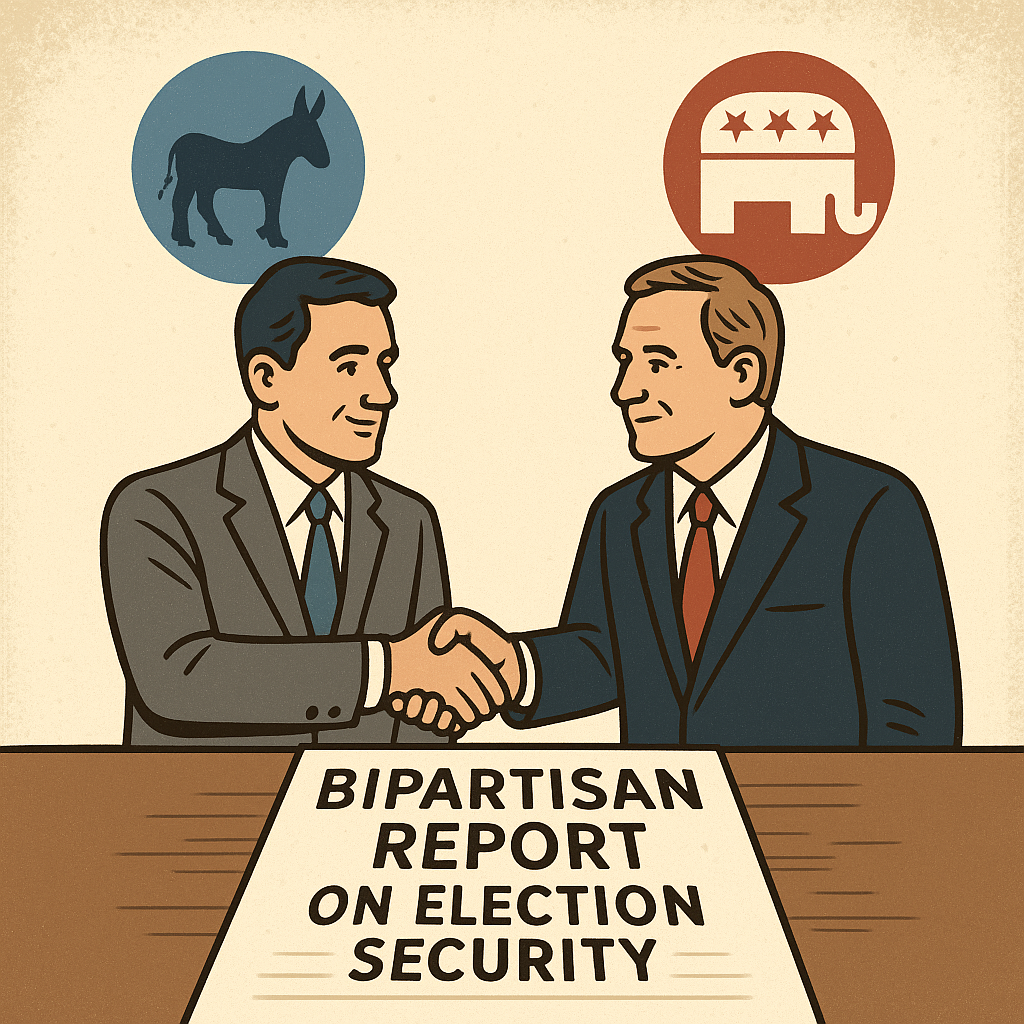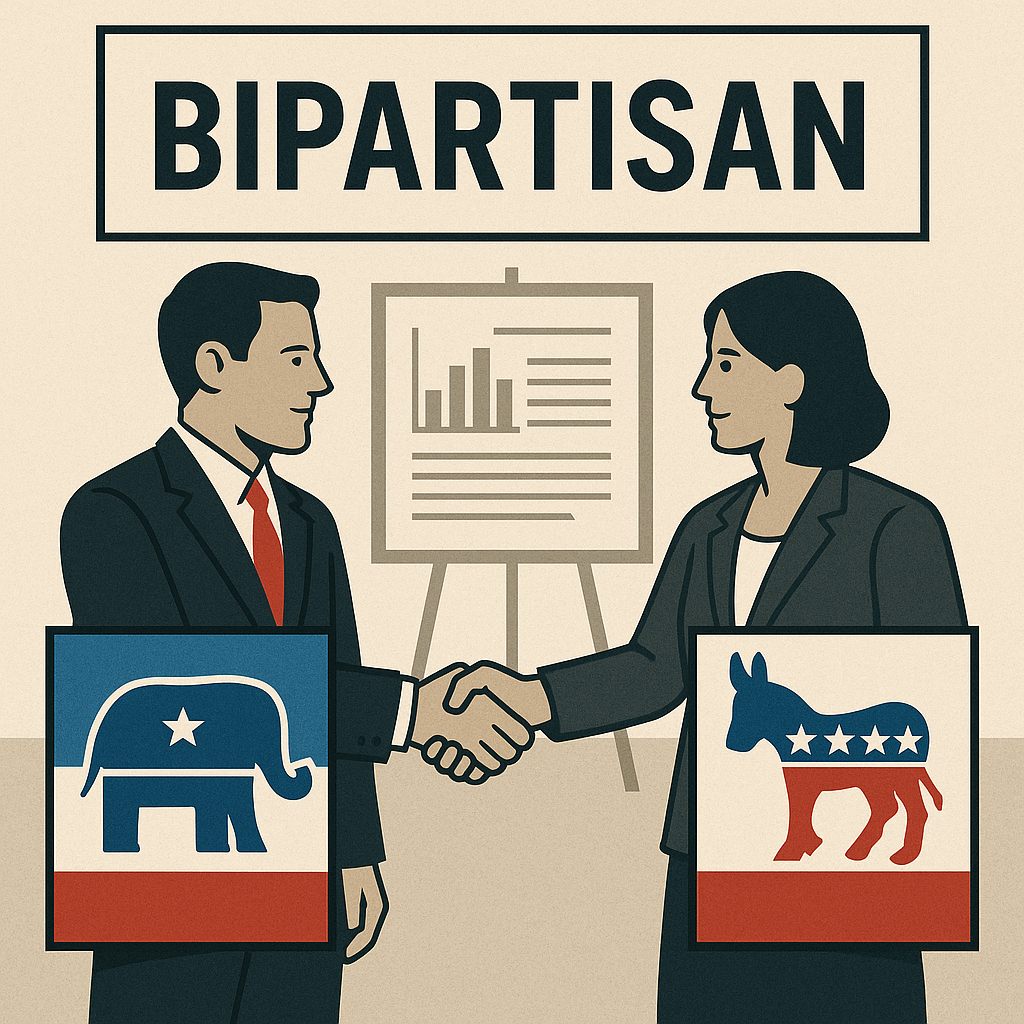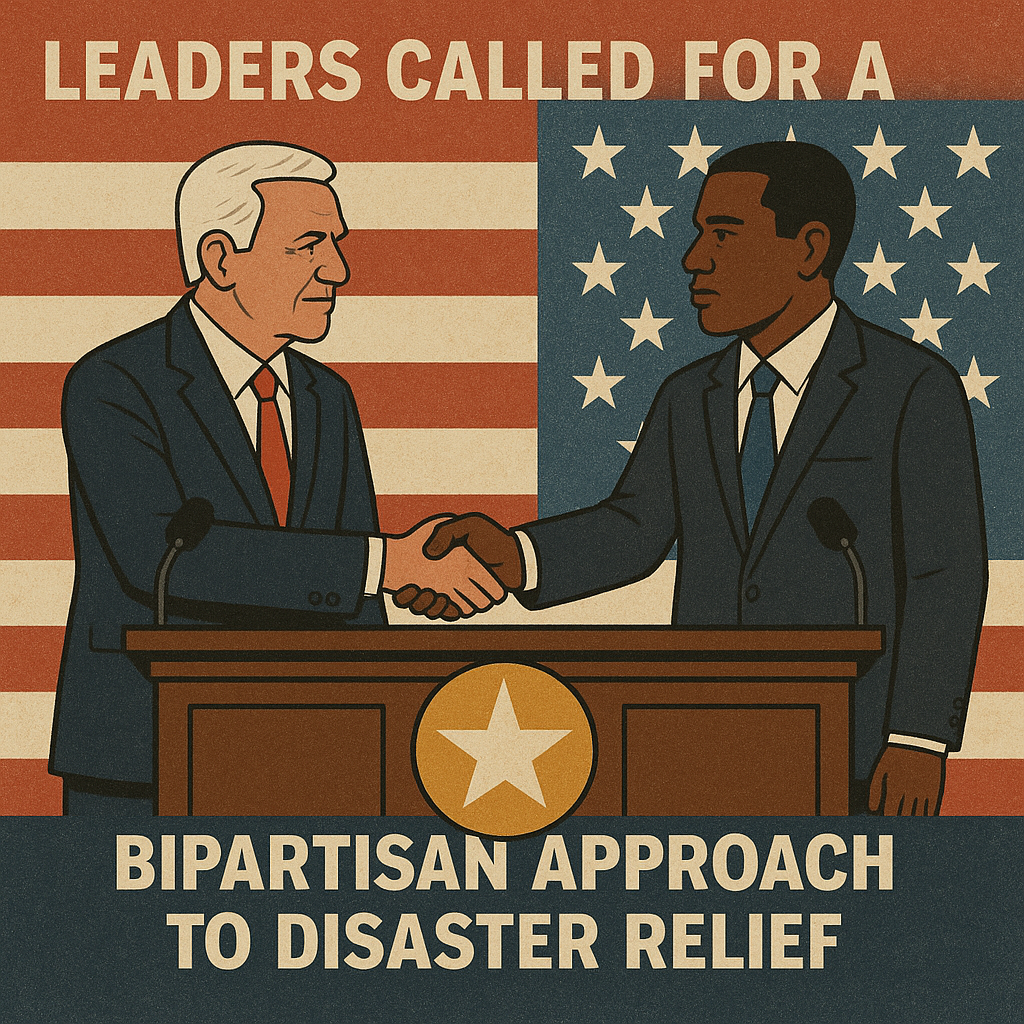Bipartisan
Definition
Bipartisan is an adjective meaning supported by, composed of, or involving members of two (typically major) political parties; characterized by cooperation or agreement across party lines.
Parts of Speech
- Adjective
Pronunciation
American English
- IPA: /ˌbaɪˈpɑːr.tɪ.zən/
- Respelling: bye-PAR-ti-zən
British English
- IPA: /ˌbaɪˈpɑː.tɪ.zæn/
- Respelling: bye-PAH-ti-zan
Etymology
Formed from the prefix bi- ‘two’ + partisan. Partisan comes via French from Italian partigiano ‘supporter of a party or faction,’ from parte ‘part, faction.’ The modern political sense of bipartisan arose in the early 20th century in U.S. political discourse.
Derivatives
- bipartisanship (noun) – the quality or state of being bipartisan.
- bipartisanism (noun) – less common; advocacy or practice of bipartisan cooperation.
- bipartisanly (adverb) – in a bipartisan manner (rare).
- bi-partisan (variant spelling).
Synonyms
- cross-party
- two-party
- interparty
- nonsectarian (political context)
- across-the-aisle
Antonyms
- partisan
- one-sided
- party-line
- polarized
- unilateral (political context)
Usage
Adjective: Describes actions, legislation, committees, or agreements that involve cooperation from two major parties. For example, “The Senate passed a bipartisan infrastructure bill,” or “Negotiators reached a bipartisan compromise after weeks of talks.”
Related Terms
- Partisan: Strongly supporting one party or cause.
- Nonpartisan: Not affiliated with or biased toward any political party.
- Coalition: A temporary alliance of parties for combined action.
- Compromise: An agreement reached by each side making concessions.
- Cross-bench / Across the aisle: Informal phrases denoting cooperation between parties.
Detailed Definitions
Adjective
- Supported by or involving two political parties – especially the chief rival parties in a legislature or political system.
- Example: “The committee issued a bipartisan report on election security.”
- Composed of members from two parties – indicating mixed party membership within a body or initiative.
- Example: “A bipartisan task force was formed to address the budget shortfall.”
- Characterized by cross-party cooperation or agreement – emphasizing collaborative intent rather than party dominance.
- Example: “Leaders called for a bipartisan approach to disaster relief.”
bipartisan








